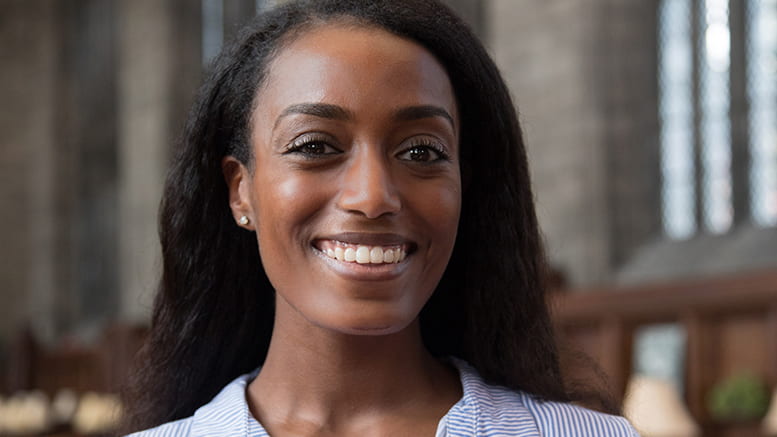Investors, Biotech Leaders and Neuroscience Experts gather for virtual ‘Biotech by the Lake 2021’
July 21, 2021

On June 22, more than 250 biotech leaders, neuroscience experts and investors gathered virtually for the third-annual Biotech by the Lake Investor Summit. The half-day program featured a series of discussions and presentations about neurological disorder breakthroughs, trends and financing and investment opportunities.
Neil L. Kelleher, the Charles E. and Emma H. Morrison Professor of Chemistry and Professor of Molecular Biosciences and Interim Director for the Chemistry of Life Processes Institute moderated the event, which was hosted by Northwestern University’s Chemistry of Life Processes Institute (CLP), Oppenheimer & Co., and BioCentury, Inc.
Several Weinberg faculty members presented their research at the summit.
Professor William Klein Presents Breakthrough Alzheimer’s Therapy

William Klein
William Klein, a professor in the Department of Neurobiology, explained his hypothesis that memory disfunction is caused by toxic amyloid-β oligomers, instead of amyloid plaques.
“Alzheimer’s disease is going to be a tremendous problem in the near future, estimated to be a trillion dollars a year in 2015,” said Klein. “I believe the new Aβ oligomer antibodies such as Acumen’s, or perhaps others, may help avert this crisis.”
In April, a new drug called ACU193 received an Investigational New Drug designation by the Food and Drug Administration. ACU193 builds on Klein’s hypothesis, and Northwestern spin out Acumen Pharmaceuticals began clinical trials this month.
Professor Yevgenia Kozorovitskiy on Inducing Neuroplasticity

Yevgenia Kozorovitskiy
Yevgenia Kozorovitskiy, the Soretta and Henry Shapiro Research Professor of Molecular Biology and professor in the Department of Neurobiology, presented new assays that her team has developed that can induce the formation of new dendritic spines in the brain.
These assays will allow researchers to test various drug therapies and study how different kinds of molecules alter the potential for plasticity in neurons.
“Neurons are discrete cells that sometimes have really complex dendritic structure, at other times very simple, and aspects of the structure and connectivity are enormously important to determining how they function.”
Professor Richard B. Silverman Presents Treatment for Upper Motor Neuron Diseases

Richard B. Silverman
Richard B. Silverman, the Patrick G. Ryan/Aon Professor in the Departments of Chemistry and Molecular Biosciences, shared his lab’s development of a potential new drug called NU-9. This drug treats upper motor neuron diseases like amyotrophic lateral sclerosis (ALS), primary lateral sclerosis (PLS), and hereditary spastic paraplegia (HSP) by maintaining the health of the upper motor neurons.
“10 to 15% of ALS is hereditary and a quarter of the hereditary disease comes from mutations in an enzyme called superoxide dismutase 1, or SOD1,” Silverman said. “Mutation in SOD1 forms aggregates, and they then accumulate in the neurons and cause neurodegeneration.”
Silverman estimates that the FDA may approve NU-9 for clinical trials in 18-24 months.
Read more about the summit here. Learn more about Northwestern’s Chemistry of Life Processes Institute on their website.
Brain & Mind

Sugar-Coated Nanotherapy Dramatically Improves Neuron Survival in Alzheimer’s Model
May 14, 2025
Scientists at Northwestern University have developed a new approach that directly combats the progression of neurodegenerative diseases like Alzheimer’s disease and amyotrophic lateral sclerosis (ALS). In these devastating illnesses, proteins misfold and clump together around…

First Synthetic ‘Mini Prion’ Shows How Protein Misfolding Multiplies
April 28, 2025
Scientists at Northwestern University and University of California, Santa Barbara have created the first synthetic fragment of tau protein that acts like a prion. The “mini prion” folds and stacks into strands (or fibrils) of…

By 15 Months, Infants Begin to Learn New Words for Objects — Even If They’ve Never Seen Them
April 23, 2025
Human language allows us to learn new words for things we’ve never witnessed directly. We do this seamlessly, for example, in conversations, using clues from the overall context to infer a new word’s meaning. But…

Almaz Mesghina receives Daniel I. Linzer Award
February 13, 2025
The content and structure of her psychology classes promote belonging among all students Almaz Mesghina has received the 2025 Daniel I. Linzer Award for Faculty Excellence in Diversity and Equity. Mesghina will be honored at a…



